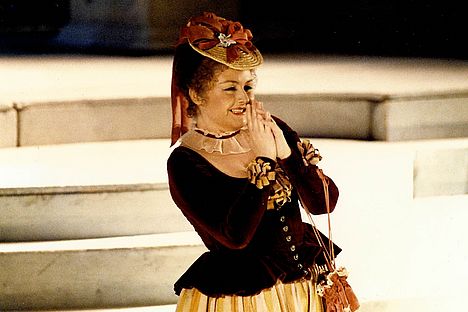
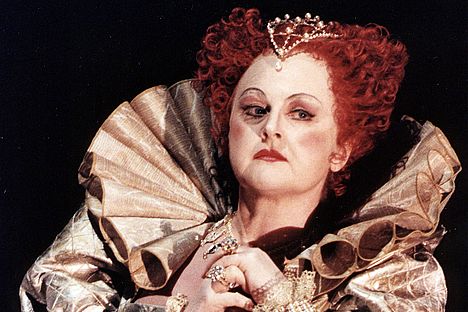
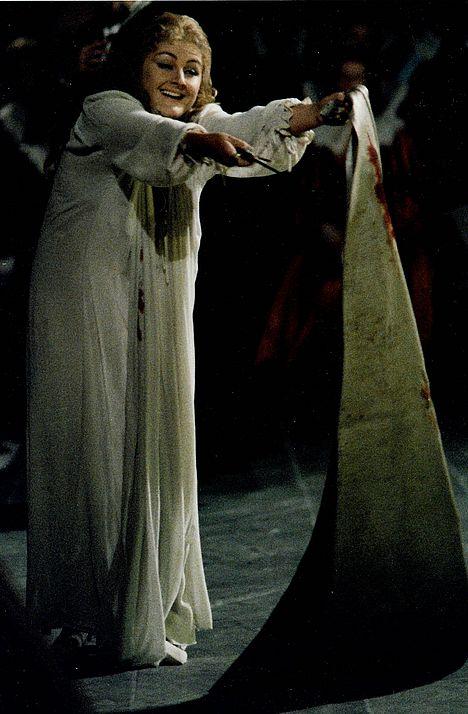
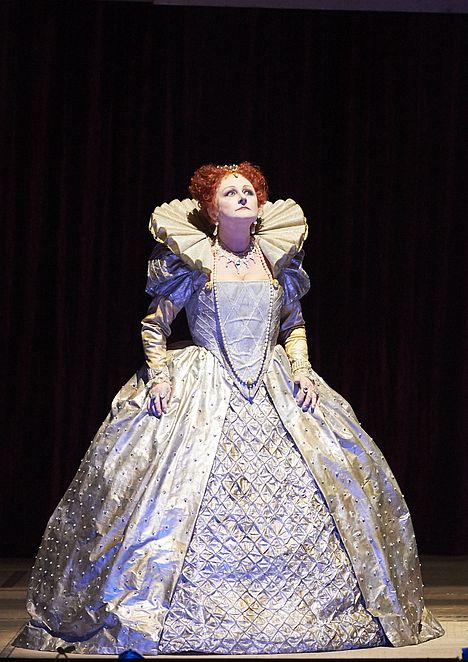
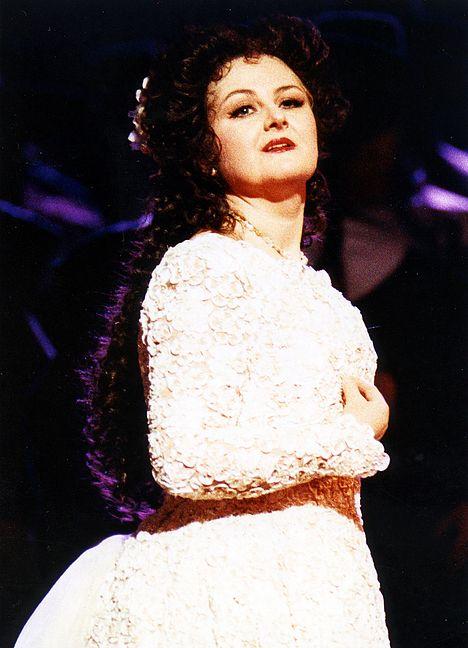
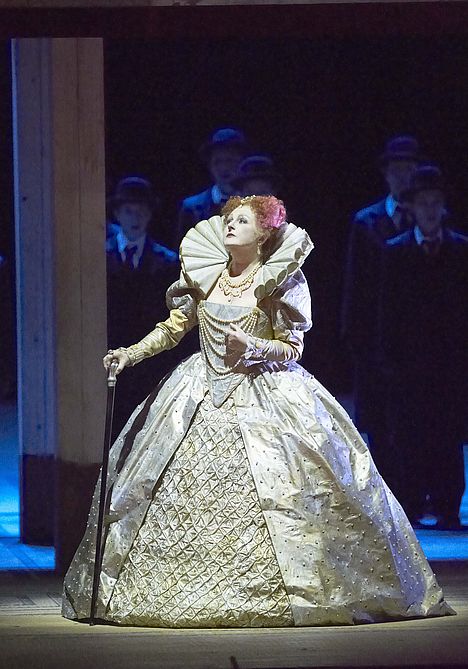
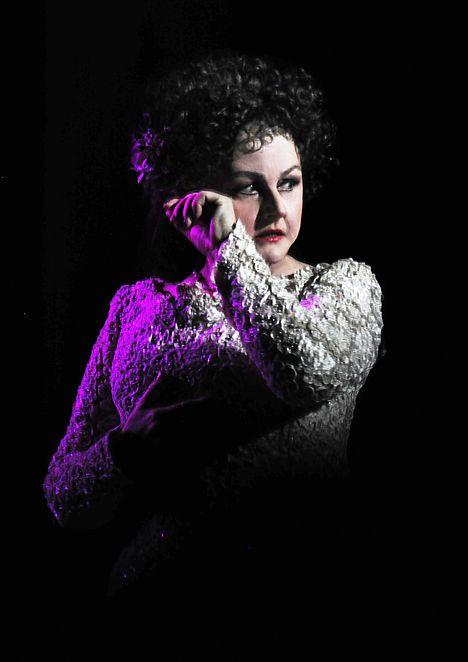
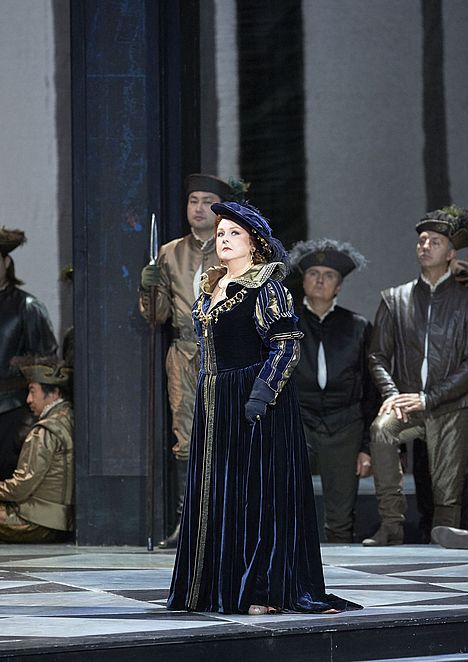
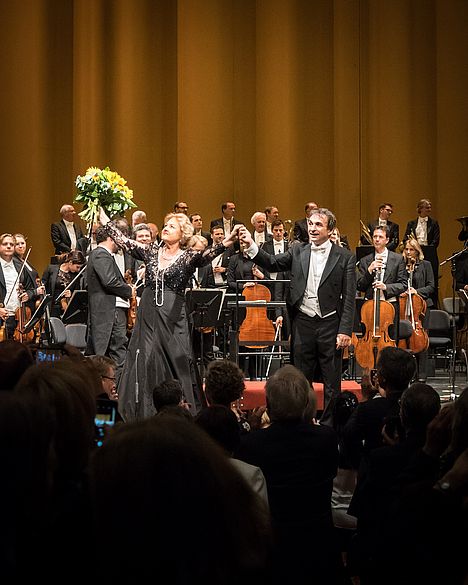
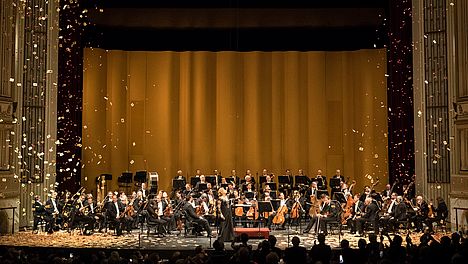
THE VIENNA STATE OPERA MOURNS THE DEATH OF KS EDITA GRUBEROVA
On February 7, 1970, she made her debut at the Haus am Ring as the Queen of the Night in Mozart's Die Zauberflöte, a role she performed almost 70 times on this stage in the following decade and a half, eclipsing many a predecessor and successor.
It was Josef Witt, the then director of the Vienna State Opera's opera studio, who then worked with her on the role of Zerbinetta and succeeded in getting her to embody the extremely challenging role in performances. First in repertory performances and then finally in the new production of November 20, 1976, which was to be her international breakthrough. The premiere conductor, Karl Böhm, who was not exactly prone to praise, expressed her singularity in a phrase often quoted later: "My God, if only Strauss had heard your Zerbinetta!" Her next triumph came in 1978 with the title role of Lucia di Lammermoor under Giuseppe Patané.
In the following years she sang many essential roles in her field: among others Violetta (La traviata), Olympia (Les Contes d'Hoffman), Konstanze (Die Entführung aus dem Serail). As Aminta (Die schweigsame Frau), Adele (Die Fledermaus), Rosina (Il barbiere di Siviglia) and Norina (Don Pasquale) - with whom she also traveled across Austria as part of the Chamber of Labor tour - she also proved her dazzling comic talent. In addition to other roles by Mozart, whose music she described as a "difficult nut to crack", she intensified her involvement in the bel canto repertoire: title role in Maria Stuarda, Giulietta in I Capuleti e i Montecchi, Elvira in I puritani, title role in Linda di Chamounix, Elisabetta in Roberto Devereux, title role in Norma (concertante), title role in Lucrezia Borgia (concertante) and title role in Anna Bolena. Some of these operas were even re-produced and performed solely because of her.
She made her last operatic appearance at the Haus am Ring on October 23, 2015 (Anna Bolena), and on June 23, 2018 she bid farewell to her beloved State Opera with a gala concert after almost 50 years.
In 2014, she described the secret of her great career in an interview for the State Opera Magazine, saying, "Singing has always been fun for me. It's what I was born to do, I never wanted to do anything else...ever since I can remember,
I have always sung: At home with my mother, children's songs at school, later, during my studies small concerts, some of them in foreign countries that we coveted so much. Singing is simply my life!"
Director Bogdan Roščić:
"Time and again Edita Gruberova referred to the Vienna State Opera as her artistic home, her birthplace, her Olympus. To the same extent, she was considered "our" Gruberova by the Viennese audience, but also by the staff of the house - a title of honor bestowed only on the very few. It was at the Vienna State Opera that her unique career began, it was here that she celebrated her international breakthrough, and it was here that she appeared in all her great roles.
Like hardly any other, Gruberova was not only a legend, but also left her mark on this house and its performance history in over 700 performances. Her much-vaunted vocal perfection was never an end in itself, but always in the service of an uncompromising devotion to the music and its best possible interpretation. Not only her Zerbinetta, Queen of the Night, Rosina or her Lucia will remain valid reference points - and star moments of human expression - for all future generations."